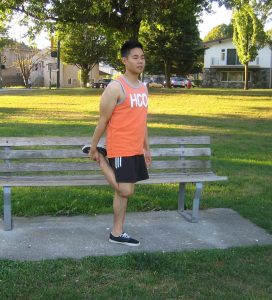The hip flexors are group of muscles that are situated in the upper top region of the thigh and extend into the hip. These muscles are responsible for bringing the thigh up to the chest and moving the hip forward. It is important to note that these muscles can end up pulled, torn or strained, thus resulting to pain and swelling. It is vital to seek medical care as soon as the symptoms manifest in order to prevent the injury from getting worse. The initial step is to determine the exact cause of the hip flexor pain as well as the severity of the injury.
Overuse
Injuries to the hip flexor are common among individuals who engage in sports that entail constant jumping, kicking and running. Excessive activity that forces the knees towards the chest such as cycling can also trigger issues as well.
Repetitive movements can cause the muscles or tendons to inflame and become sore. In case the injury is minimal, getting enough rest and application of ice on the hip along with anti-inflammatory medications are enough. The individual can resume his/her activities steadily once the symptoms fully resolve which usually takes one or several weeks depending on the severity of the injury.

It is also best that the individual will take time to warm up properly before and stretch after working out. Working hand in hand with a trainer or coach is also recommended so that proper guidance on how to partake in sports is given without misusing the hip flexor muscles.
Forceful movements
Certain activities such as sprinting and sports such as soccer or basketball that require start and stop movements can cause hip flexor pain. Take note that these actions can pull on forcefully on the hip flexor muscles and trigger an injury.
A direct blow to the area can trigger issues as well. Even though an injury due to overuse can initially cause minor pain that gradually worsens, a strong blow or contraction of the muscle can result to immediate intense pain.
In case the injury is not managed as soon as the symptoms manifest or if the movement was strong enough, the muscle and tendons can partly or fully tear. When a tear occurs, the individual should rest and the injury might take weeks or months to fully heal. In case there is a severe tear, surgery might be needed.
Hip replacement surgery
For individuals who have severe hip arthritis or injury, surgery might be required to exchange the hip joint using prosthesis. In uncommon circumstances, there might be lingering hip flexor pain in some individuals. In case this occurs after surgery, there is hip flexor pain that seems to worsen when lifting the leg straight out to the front or when bringing the knees to the chest. The exact cause why this occurs is still not fully understood. In some cases, the pain can be reduced using steroid injections while others require further surgery to release any impingement to the nerves or muscles in the region.
